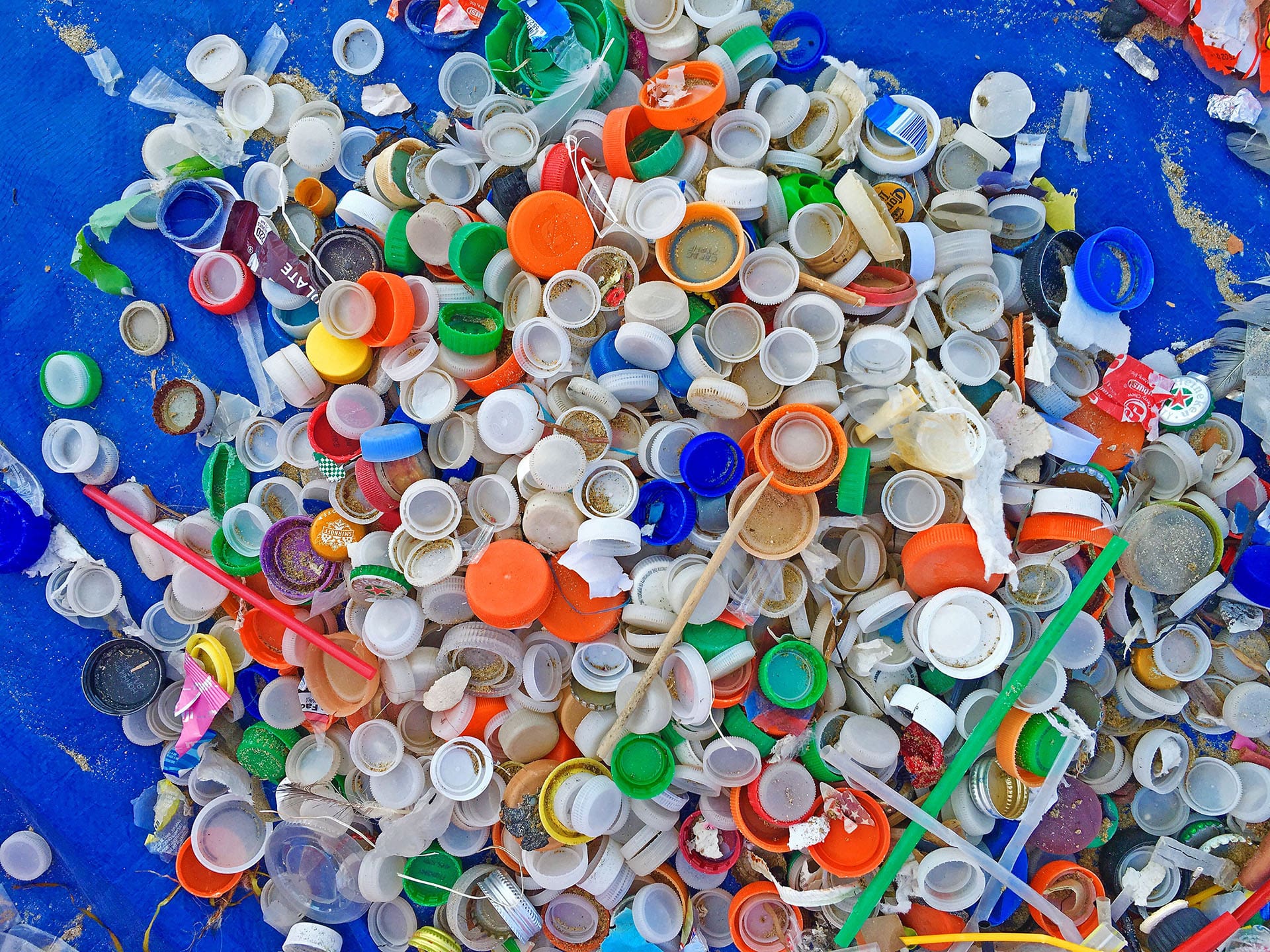
Plastic Pollution Reduction
From source to shore, reducing plastic at the root protects our ocean and communities. Between smart policies and individual actions, together we can rise above plastics.
Plastic Pollution
Most plastic pollution at sea starts out on land from overflowing landfills or as litter on beaches, streets and sidewalks. Rain flushes that plastic through a storm drain system, or directly sends it into creeks, streams and rivers that lead to the ocean. After plastics enter the marine environment, they slowly photodegrade into smaller pieces that marine life can mistake for food, sometimes with fatal results. Research groups report that ocean gyres — a system of circulating currents in an ocean — concentrate plastic pollution in five main areas of the world’s ocean, with alarming consequences.
The whole lifecycle of plastics is also problematic. From extraction to disposal, plastic pollutes our communities and environment. It is a leading contributor to climate change. And more often than not, it disproportionately harms Black, Indigenous, and Communities of Color.
Simple local actions can help make an impact to solve this global issue. Join us in protecting the coast and rising above plastics! Help make a difference by getting involved with your local Surfrider Foundation Chapter.
Plastic is all around us (and in us!)
It's in our homes, offices, vehicles, yards, and playgrounds. We make and use it to package food, bottle products, bag produce, and construct dinnerware, utensils, toys, and more.
Plastics have undoubtedly helped us to manufacture, package and ship goods more easily, however, plastics pose a significant threat to our planet as well.
Part of the problem is plastic itself. The very qualities that make it an adaptable and durable product to use, also make plastic an environmental nightmare. Since plastics do not biodegrade and instead break down under exposure to the sun's ultraviolet rays, they simply become smaller and smaller, eventually becoming microplastics. These microplastics get everywhere - they are in our air, water, and food - and are essentially impossible to clean up.
Bottom line: with the exception of the small amount that has been incinerated (which is also problematic), virtually every piece of plastic that was ever made still exists today in some shape or form.
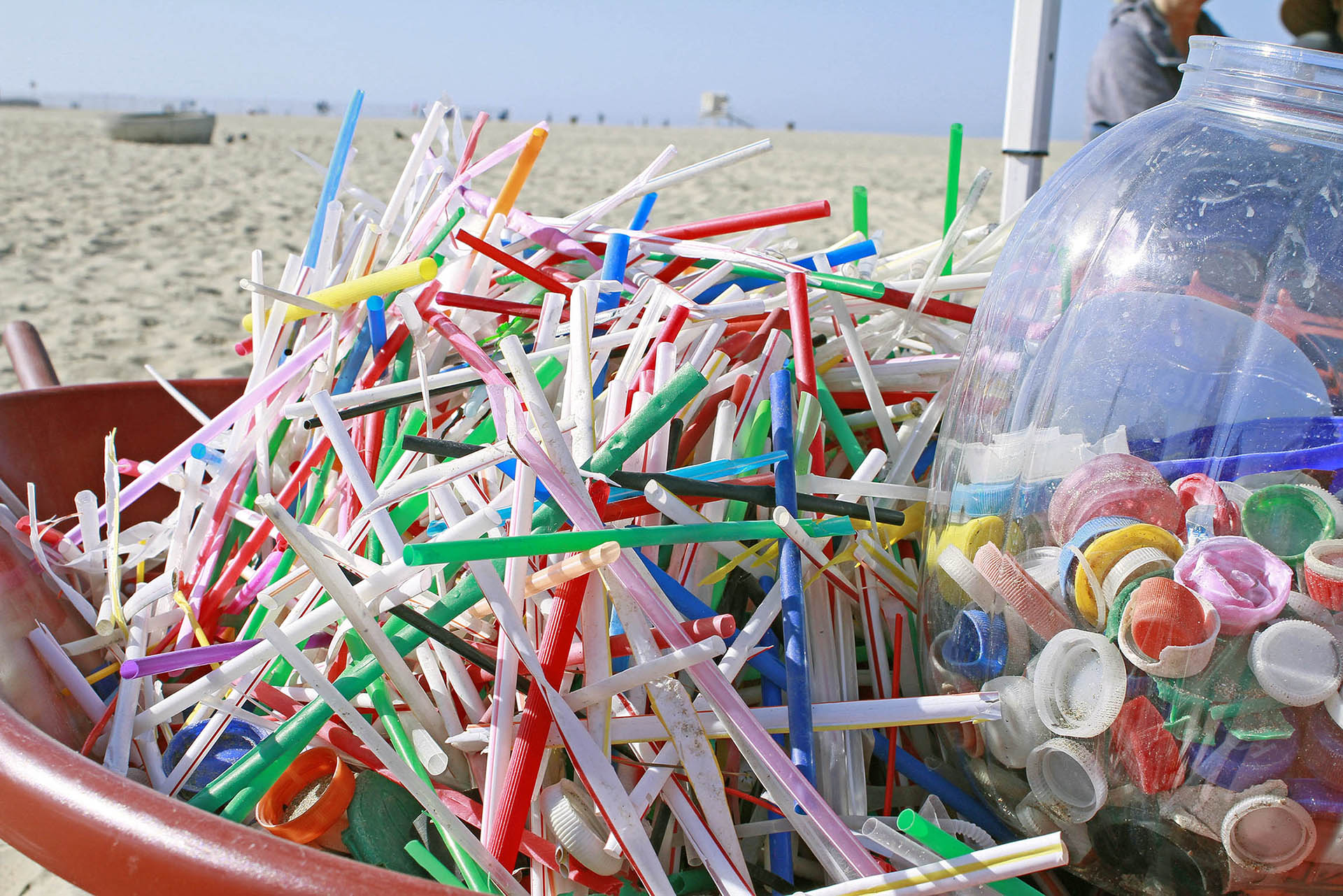
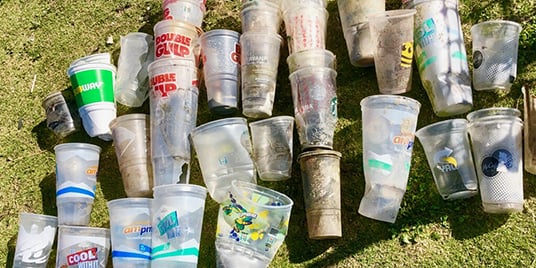

Trash Interceptors (Plural) are coming to North OC
San Diego Creek, San Gabriel River, and more.
We are currently working with elected and public work authorities in various cities, LA and OC County, and state levels in order to make our ocean, waves, and beaches better for all to enjoy.
Program Mission and Goals
Our mission is to reduce the impacts of plastics in the marine environment by raising awareness about the dangers of plastic pollution and by advocating for a reduction of single-use plastics and the recycling of all plastics.
We encourage YOU to help address these global issues locally with plastic reductions at home, school, work, and for your entire community:
- Connect with the Plastic Pollution Initiative by attending a Surfrider Foundation Chapter meeting.
- Get involved with your local chapter and/or spread the word to friends and family about the problems with plastics.
- Be a leader and have the biggest impact by directing a plastic reduction program at school/work or a plastic reduction ordinance with your local city council.
Learn more about reducing your plastic footprint by learning about going plastic-free, making your home ocean-friendly, and sneaky sources of plastic.
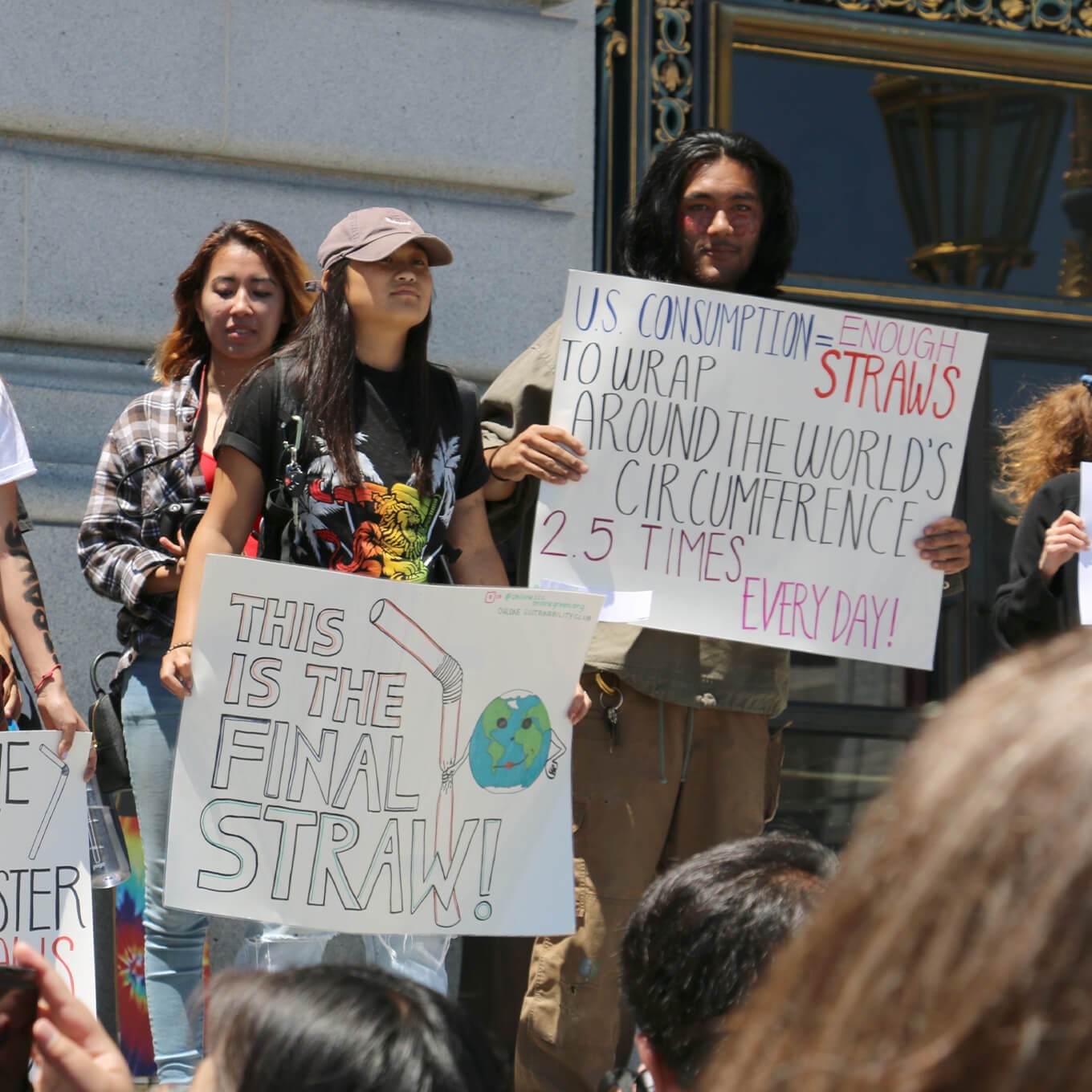
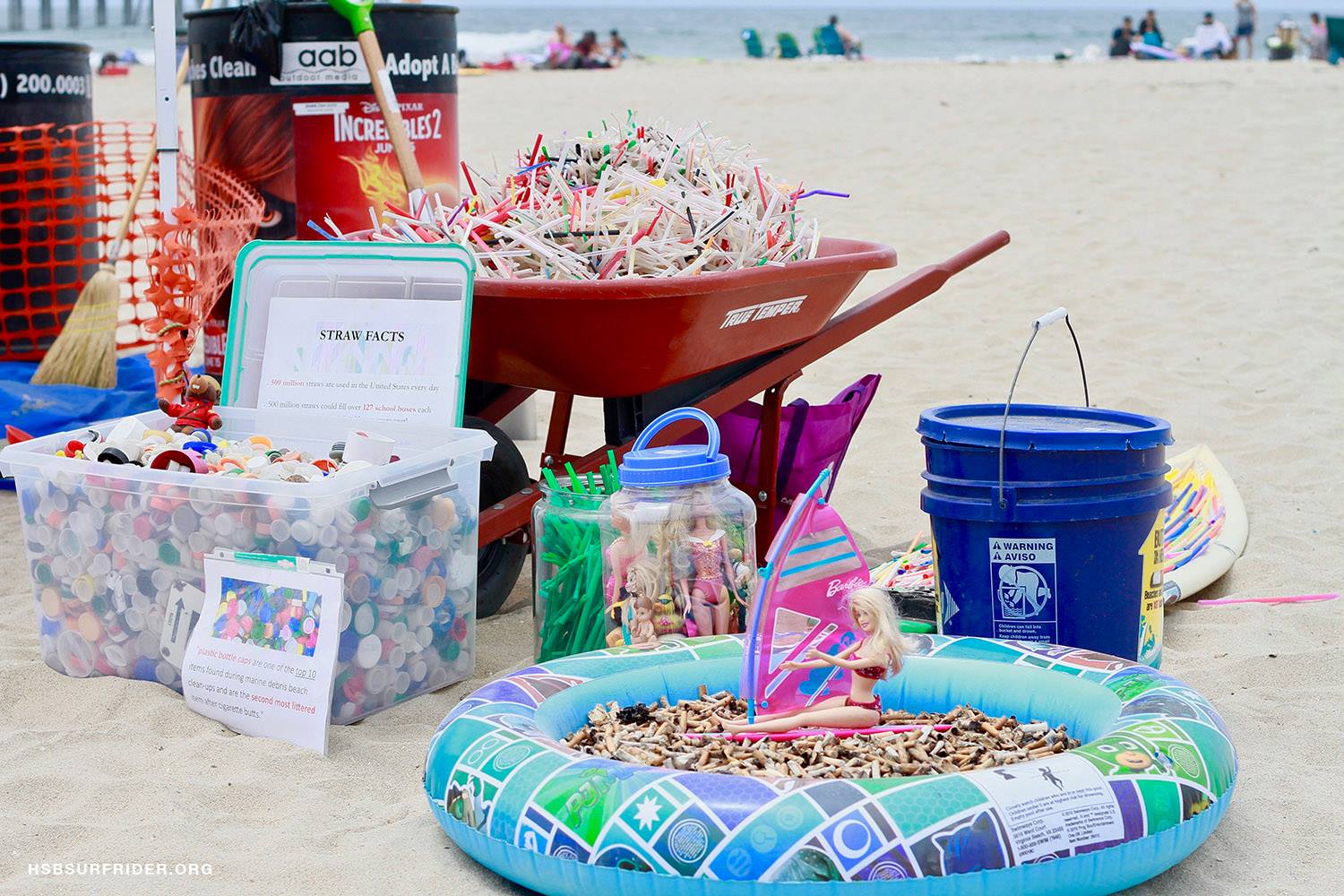
Programs & Resources
Ocean Friendly Restaurants
Surfrider Foundation’s Ocean Friendly Restaurants program recognizes restaurants that are committed to cutting out wasteful single-use plastic. It offers restaurants a simple and straightforward framework to make sustainable choices for our ocean and become leaders in their communities. A main goal is eliminating expanded polystyrene (EPS) foam food ware (aka Styrofoam™) because it is highly toxic, and a top item found at our beach cleanups. Participating restaurants will also avoid plastic bags, bottles, and straws as these too consistently make the top ten items found at cleanups. To address restaurant sustainability more holistically, we added criteria to address water and energy conservation, food waste composting, and environmentally friendly food choices. We represent an inclusive community that supports a healthy lifestyle for ourselves and our planet in order to find more joy and peace in our everyday lives.
To learn more please visit our Ocean Friendly Restaurants website.
Beach Cleanups
Surfrider Foundation’s beach cleanup program provides a fun and easy way to volunteer and engage with our mission to protect our ocean, waves and beaches. Volunteers of all ages, community groups, tourists, clubs, local and corporate businesses and elected officials around the country contribute to the success of this program and are essential to keeping our beaches and coastlines clean. When volunteers inform Surfrider about the trash picked up during their cleanup, they are contributing to plastic pollution research and helping to influence legislation. Surfrider’s cleanups do more than clean the beach, they influence policy! Check out our beach cleanup results.
Policy
The Surfrider Foundation has successfully helped pass legislation at the city, county, state, and federal level for over a decade aimed at reducing plastic pollution. We’ve been tirelessly pushing for legislation that will minimize plastic’s harmful impacts on our environment and communities. Learn more about our policy work here.
Plastics Facts
- Plastic production, first developed in the 19th century soared during the 20th century, from 2 million metric tons in 1950 to 348 million metric tons in 2017 and is expected to double in capacity yet again by 2040. [1]
- Plastic is problematic throughout its whole lifecycle - from the point of raw material extraction to its eventual disposal and dispersion. Roughly two-thirds of all plastic ever produced remains in the environment today—either as pollution in oceans and other landscapes, as microparticles in air, soil, and rain, or as microparticles in humans and animals.[2]
- Many of the chemicals used in the plastics manufacturing process are toxic, and workers who make them and those living near a factory are at greatest risk. Moreover, emissions from these factories can pollute the air, and the liquid and solid waste produced need disposal. [3]
- Plastic is the most common type of marine litter worldwide. [4],[5]
- Plastic has been found to be small enough to be in our bloodstream [6 ]
- Plastic has been found in human placenta [7 ]
- Plastic may be a cause of low testosterone [8 ]
- Plastics may be cause of pregnancy loss [9 ]
See even more Plastic Pollution Facts & Figures here.
COVID-19 Resources
The COVID-19 pandemic has impacted many facets of our lives. It’s important to remember that reusables are safe when proper precautions are taken. We’ve been promoting and providing guidance to our Ocean Friendly Restaurants during this difficult time and shedding light on the plastic industry’s ploy in promoting single-use plastics:
- Ocean Friendly Restaurants Reopening with Reusables (7/6/2020)
- How to Reopen Restaurants While Safely Using Reusables (5/11/2020)
- Plastics Industry Tactics Brought Into Focus (4/30/2020)
- Single-Use Plastic Bags During COVID-19 (4/2/2020)
- The Secret to More Sustainable Takeout (3/30/2020)
- Plastic Pollution during the Pandemic: Reusables are Still Safe (3/23/2020)
Plastic Pollution on the Web
The Plastic Pollution Initiative likes to stay connected with our supporters as much as possible and we welcome your feedback and ideas. Here are some of the main places you can find more info and stay connected:
Learn more about plastic pollution on the policy page and Beachapedia.
Check out Surfrider Foundation Plastic Pollution Initiative Campaigns across the county here (click on Plastics Pollution campaigns).
Visit the Surfrider Foundation Store for reusable bottles and more!
Student Guide to Plastic Pollution Activism
This guide provides students both the knowledge and tools they need to make an immediate and lasting impact in the fight against plastic pollution. It is divided into four sections: Rise Above Plastics, Beach Cleanups, Ocean Friendly Restaurants, and Policy. Each section contains videos produced by Surfrider’s Student Club Leadership Council along with helpful resources to help students take action. This guide is a platform for students to learn, engage, and create lasting results. We believe young people will lead the way towards an equitable, healthy, and plastic-free planet for generations to come.
Plastic Pollution Initiative Activist Toolkit
Help reduce plastic waste in your community with the Rise Above Plastics Activist Toolkit! This is a step-by-step guide to creating positive change in your community through reducing single-use plastics. The RAP Toolkit is focused on establishing a plastic bag ban or similar ordinance and it also offers insight on increasing awareness of plastic pollution issues through education and outreach.
Break Free From Plastic Movement
The Surfrider Foundation is a member of the Break Free From Plastic movement. Since its launch in 2016, more than 11,000 organizations and individual supporters from across the world have joined the movement to demand massive reductions in single-use plastics and to push for lasting solutions to the plastic pollution crisis.
Donate as little as $10 to stay connected.
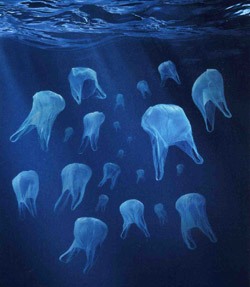
Program Coordinator:
Jessica Walden, PhD.
Oceanography and Environmental Science
JWalden@NorthOC.Surfrider.org
Expert on sustainability, plastic pollution, and microplastic research.

